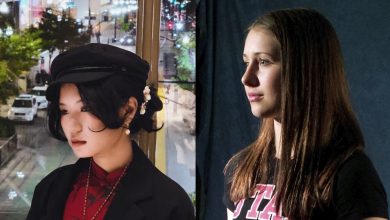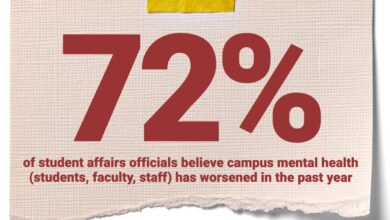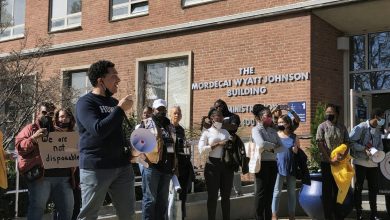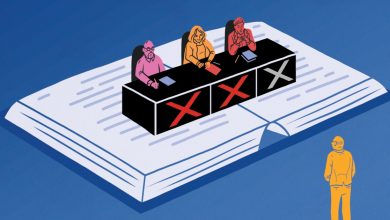This Professor Was Investigated for an ‘Offensive’ Land Acknowledgment. Now He’s Suing.
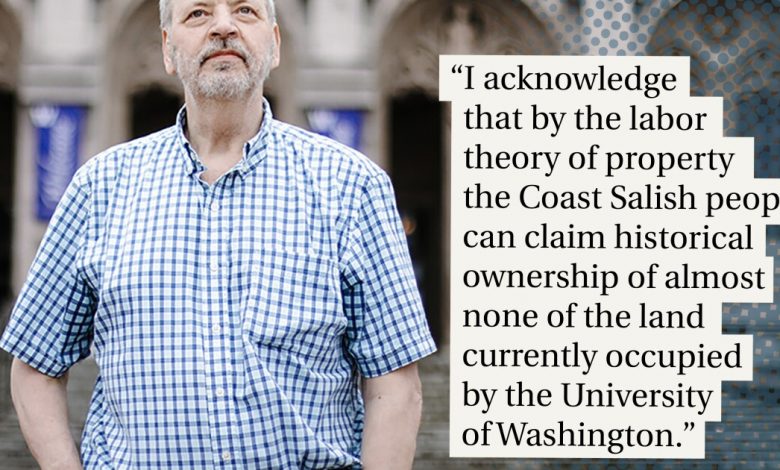
[ad_1]
A computer-science professor is suing the University of Washington for allegedly violating his First Amendment rights and retaliating against him after he included a land acknowledgment in a course syllabus that one administrator deemed “offensive.”
The lawsuit, filed by Stuart Reges and supported by the Foundation for Individual Rights and Expression, is the latest example of a faculty member’s contention that a college’s efforts to be inclusive infringe on academic freedom.
Across the country in recent years, colleges have begun creating and publishing land acknowledgments to recognize that their campuses sit on land once held by Indigenous people. The moves often are a response to community demands.
At the same time, the acknowledgments have gained critics, with some arguing they mean nothing without further action to support local Indigenous communities. Earlier this year, FIRE urged administrators at San Diego State University to drop a requirement that syllabi contain land acknowledgments because it “imposes an institutional orthodoxy on its faculty that contravenes the university’s strong commitment to freedom of speech.” The university’s faculty later voted to drop the requirement.
“There’s a growing movement on campus to push a particular ideology,” Reges said in an interview on Wednesday. “And there’s been an unfortunate narrowing of allowed opinions — you know, this idea that it’s OK to express progressive ideas, but conservative ideas are not OK.”
The lawsuit, filed in the U.S. District Court in Seattle, claims the university “discriminated against Professor Reges for swimming against the current and offering a dissenting viewpoint” on the issue of a land acknowledgment, by creating a separate class students could join that was not taught by Reges and by beginning a disciplinary investigation into him for violating university policies.
A university spokeswoman said in a statement: “The University of Washington is reviewing the complaint. The university continues to assert that it hasn’t violated Stuart Reges’ First Amendment rights, and we look forward to making that case in court.”
According to the lawsuit, university administrators encouraged professors in September 2020 to “include a statement on their syllabi recognizing that the land on which the university sits was once owned by Indigenous people,” and offered a recommended statement: “The University of Washington acknowledges the Coast Salish peoples of this land, the land which touches the shared waters of all tribes and bands within the Suquamish, Tulalip, and Muckleshoot nations.”
But for a course that began in January, Reges wrote a different statement: “I acknowledge that by the labor theory of property the Coast Salish people can claim historical ownership of almost none of the land currently occupied by the University of Washington.”
Reges said in an interview that what he has gathered from researching land acknowledgments “is that you’re supposed to affirm a particular view of American history — you could call it the Howard Zinn view — that the United States has been evil and stole the land from Indian tribes.” He said he wanted to create something “that didn’t affirm that view of American history.”
A ‘Toxic Environment’
The day after the first class was held, according to the lawsuit, Magdalena Balazinska, director of the computer-science department, ordered Reges by email to “remove the statement from his syllabus because it was ‘offensive’ and created a ‘toxic environment.’” Reges refused. (Balazinska did not answer an email seeking comment.)
Balazinska, who is a defendant in the lawsuit, then emailed the students in the course “to apologize for his ‘offensive’ statement and to provide three ways students could file complaints against Professor Reges,” the lawsuit says. Balazinska later emailed the students again to let them know they could switch into a “shadow” course, held at the same time but taught by a different professor, according to the suit.
About 170 of the more than 500 students in the class joined the new course, the lawsuit says.
Reges said most students didn’t seem to notice the statement until conservative news outlets started covering it. In each of the two courses he has taught with the statement in his syllabus, he said, a couple of students complained about it in course evaluations but none spoke to him directly about it.
According to the lawsuit, Balazinska contacted Reges to seek a meeting about allegations he had violated university policies. That included University of Washington Executive Order 31, which says “the university retains the authority to discipline or take appropriate corrective action for any conduct that is deemed unacceptable or inappropriate, regardless of whether the conduct rises to the level of unlawful discrimination, harassment, or retaliation,” the lawsuit reads.
Soon after, Reges received from Balazinska a proposed resolution of the alleged violations of policy, described as “the first step to resolving alleged faculty policy violations,” according to the lawsuit. The resolution required Reges to interact with others on campus in a respectful way and to create a welcoming environment, the suit says, and to no longer include his statement in his syllabi. He declined.
In April he was notified the university would take formal disciplinary action against him, the suit states. As of the lawsuit’s filing, Reges has been given “neither the written charges the disciplinary committee will consider nor with proposed dates for that disciplinary proceeding,” according to the complaint.
Reges could be terminated based on the findings of the disciplinary investigation, according to the lawsuit. That, along with his concern that others could be targeted for similar speech at the university, led Reges to file suit, he said.
“This is an issue that’s being explored on campuses across the country,” he said. “To what extent do we want to limit what faculty can say in the name of creating an inclusive environment?”
[ad_2]
Source link


